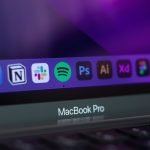Introduction.
Conducting research is an integral part of various academic, professional, and personal pursuits.
Whether you’re a student working on a thesis, professional gathering information for a project, or an individual exploring a topic of interest, having a reliable and efficient tool to organize and manage your research is essential.
Notion, the versatile productivity tool, provides a robust platform for conducting research, collating information, and organizing your findings in a structured and intuitive manner.
With its customizable interface, powerful organization features, and seamless integration options, Notion offers a comprehensive solution for leveraging the full potential of your research process.
In this guide, we will delve into how to use Notion for research, empowering you to streamline your workflow, capture valuable insights, and create a central hub for your research endeavours.
From organizing your sources to annotating articles and creating visualizations, Notion can be your trusted companion throughout the research journey, enabling you to unlock discoveries and make meaningful contributions in your field of study.
Hey there, dear reader! We hope you’re enjoying the content on our blog. Did you know we have a treasure trove of other insightful articles waiting for you?
Checkout the links to the article below to become more productive and scale your Notion experience.
- How To Make Money Selling Notion Templates
- How To Make Money Online With Notion
- How To Make Money With Notion Templates
- How To Become a Notion Consultant
- How To Personalize Notion
- How To Use Notion For Social Media Management
- How To Sell Notion Templates On Etsy
- How To Build a Website On Notion
- How To Build Your Portfolio On Notion
- How To Use Notion For Personal Use
- How To Use Notion For Research
How Do I Use Notion For Research?
With its intuitive interface, customizable structure, and seamless integration options, Notion provides a powerful platform for managing your research process effectively.
In this article, we will explore how to leverage Notion for research, empowering you to enhance productivity, streamline collaboration, and create a centralized hub for your research projects.
1. Setting Up Your Research Workspace.
The first step in using Notion for research is to set up a dedicated workspace. Learn how to create a new page, customize the layout, and establish a structure that aligns with your research needs.
Whether you prefer a project-based approach or a centralized database, Notion’s flexibility allows you to tailor the workspace to suit your research requirements.
2. Organizing Your Research Materials.
Notion provides a variety of tools for organizing your research materials. Discover how to create databases, folders, or linked pages to categorize and store your sources, articles, notes, and references.
Explore techniques for adding metadata, tags, and filters to enhance searchability and streamline the retrieval of relevant information.
3. Annotating and Summarizing Research Articles.
Efficiently analyzing and summarizing research articles is a crucial aspect of the research process. Notion offers features that enable you to annotate and highlight important sections of text, add comments, and create concise summaries.
These annotations serve as valuable references and help you distil key insights from extensive reading materials.
4. Collaborating with Research Teams.
Research often involves collaboration with colleagues, advisors, or team members. Notion’s collaboration features make it easy to work together in real-time.
Discover how to invite collaborators, assign tasks, and leave comments on specific sections of your research documents.
By fostering collaboration within the platform, you can enhance productivity and exchange valuable insights with your research team.
5. Creating Research Roadmaps and Outlines.
Notion’s versatile layout options allow you to create research roadmaps and outline. Learn how to use Kanban boards, tables, or hierarchical structures to visualize your research plan, track progress, and manage tasks.
These visual representations help you stay organized and provide a clear overview of your research project’s trajectory.
6. Integrating Research Tools and Extensions.
Notion’s integration capabilities enable you to seamlessly connect with other research tools and extensions.
Explore how to integrate citation managers, note-taking apps, or reference managers to streamline your research workflow.
By linking external tools to your Notion workspace, you can centralize your research materials and access them with ease.
7. Creating Visualizations and Reports.
Notion’s rich text editor and database capabilities allow you to create visualizations and reports to present your research findings.
Discover how to create charts, graphs, or tables directly within Notion, or export your data to other visualization tools.
By visually representing your research data, you can communicate complex information effectively and make your research more accessible.
8. Staying Organized and Tracking Progress.
Maintaining organization and tracking progress is vital for successful research. Learn how to utilize task management features, deadlines, and reminders to stay on top of your research milestones.
By tracking progress and setting achievable goals within Notion, you can ensure that your research stays on schedule.
Conclusion.
Notion is a game-changer for researchers seeking an efficient and streamlined approach to their work.
By implementing the strategies outlined in this comprehensive guide, you can harness Notion’s capabilities to organize your research materials, collaborate effectively, and visualize your findings.
Embrace the versatility and customization options provided by Notion to create a research workspace that suits your unique requirements.
With Notion as your research companion, you can elevate your productivity, delve deeper into your subject matter, and make meaningful contributions to your field of study.
Hey there, dear reader! We hope you’re enjoying the content on our blog. Did you know we have a treasure trove of other insightful articles waiting for you?
Checkout the links to the article below to become more productive and scale your Notion experience.
- How To Make Money Selling Notion Templates
- How To Make Money Online With Notion
- How To Make Money With Notion Templates
- How To Become a Notion Consultant
- How To Personalize Notion
- How To Use Notion For Social Media Management
- How To Sell Notion Templates On Etsy
- How To Build a Website On Notion
- How To Build Your Portfolio On Notion
- How To Use Notion For Personal Use
- How To Use Notion For Research






GIPHY App Key not set. Please check settings